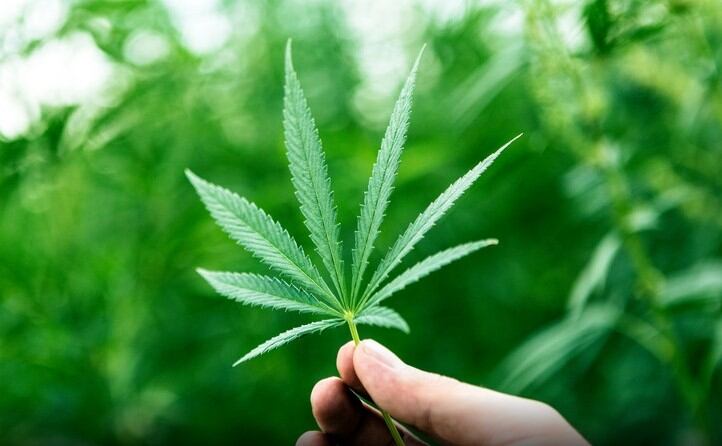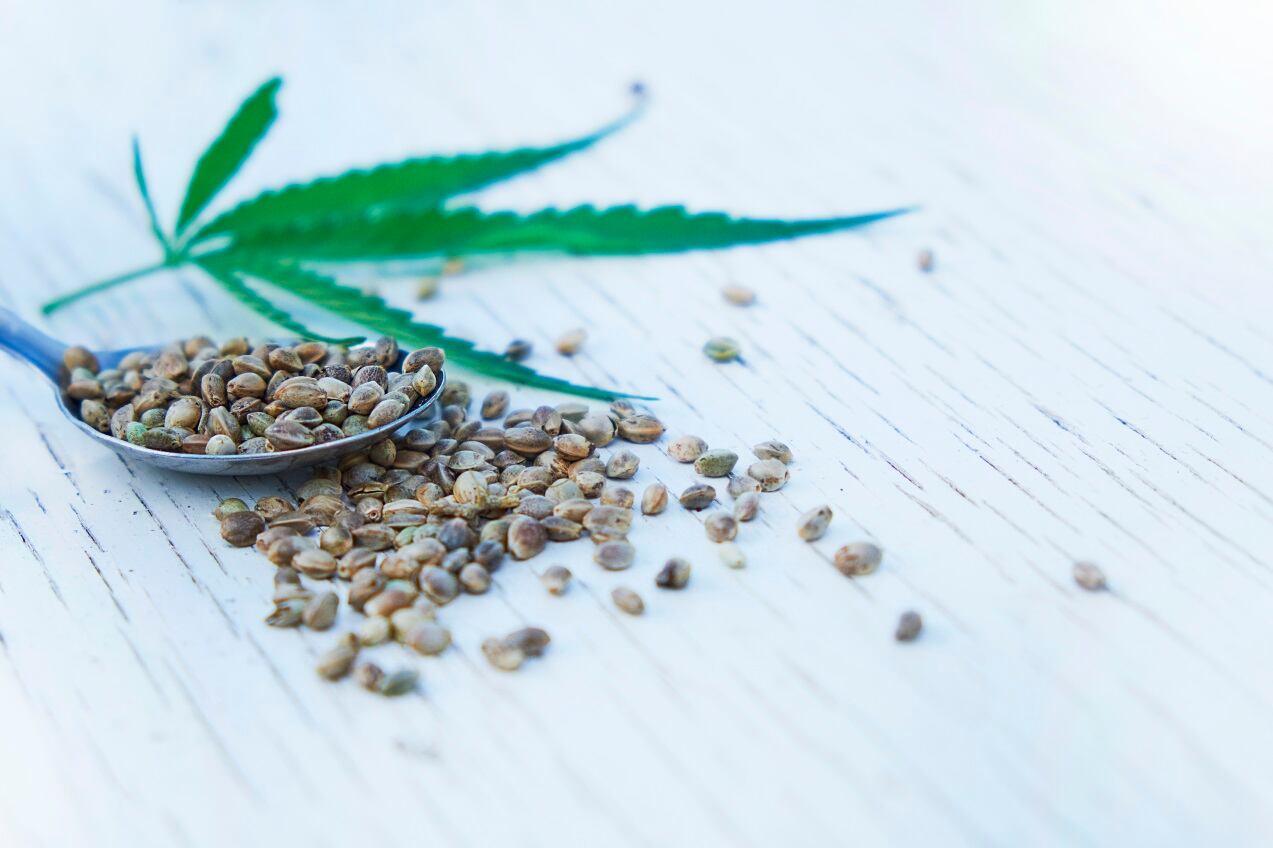The research team point to findings from cannabis oil products demonstrating that labelling information for CBD and THC was often different from the actual contents.
The team also highlight the need to characterise and toxicologically assess CBD degradation products within the context of the novel food registration process.
“In our opinion the systematically high THC content of CBD products is clearly a “scandal” on the food market,” the study says, led by Dr Dirk Lachenmeier, food chemist, toxicologist at the Chemical and Veterinary Investigation Laboratory (CVUA) of Karlsruhe.
“Obviously, the manufacturers have – deliberately or in complete ignorance of the legal situation – placed unsafe and unapproved products on the market and thus exposed the consumer to an actually avoidable risk.
“In view of the growing market for such lifestyle food supplements, the effectiveness of the instrument of food business operators’ own responsibility for food safety must obviously be challenged,” he adds.
The study’s findings provoked a strong reaction from CBD developers and industry groups alike, who objected to the study’s tone and approach in which it came to its conclusions.
“If you look at all the tests which are done, we see a high percentage of current products are not okay and that the info on the label does not matches with the content,” says Waldo van der Hel, partner at Renviden, a Dutch-based company that develops products based on a patented micro-encapsulated full spectrum CBD-oil.
“The statement that the products are unsafe is another undue blanket statement and must refer to products only which have been proven unsafe for consumption according to current requirements,” adds a spokesperson from the European Industrial Hemp Association (EIHA). “However, this cannot be proven by this paper.”
Study details
To study THC contamination of commercial products, the team began analysing 67 products available on the German market, consisting mostly of CBD oils.
They used a liquid chromatographic method with tandem mass spectrometry (LC-MS/MS) to assess THC content.
To investigate CBD degradation into THC under acidic conditions, differently concentrated CBD in methanolic solutions was used in a range corresponding to typical amounts consumed with supplements based on commercial CBD.
These solutions were exposed to an artificial gastric juice as well as different incubation times and stress factors such as storage under light and heat.
The team found that 17 products (25%) contained THC above the lowest observed adverse effects level (2.5 mg/day).
Further findings revealed no conversion of CBD to THC was observed in any of the samples except the positive control (2-week storage in 0.5 mol/L HCl and 50% methanol).
Here, a complete degradation of CBD into 27% THC and other not identified products (with fragments like the ones found in cannabinol and THC fragmentations but with other retention times) were observed.
Out of 67 samples, 17 samples (25% of the collective) exceeded the THC lowest-observed-adverse-effect level (LOAEL) and were assessed as harmful to health.
In addition, 29 samples (43% of the collective) were classified as unsuitable for human consumption due to exceeding the Acute Reference Dose (ARfD).
Some of the CBD oil supplements contained THC in doses up to 30 milligrams (mg), which the team said could easily explain the adverse effects observed by some consumers.
‘Lack of quality control’
“Our results provide compelling evidence that THC natively contained in CBD products by contamination may be a direct cause for side effects of these products,” the study says. “Obviously, there is an involuntary or deliberate lack of quality control of CBD products.
“Claims of “THC-free”, used by most manufacturers, even of the highly contaminated products – sometimes based on unsuitable analytical methodologies with limits of detection in the percentage range –, have to be treated as fraudulent or deceptive food information.”
Van der Hel hit back at these statements highlighting the lengths his firm Renviden go to in testing their products and maintaining standards.
“Our products are tested by three independent labs and only placed on the market when all the labs have the same results. Furthermore, we only work with EU approved seeds from the EU seed bank.
“This guarantees that the levels of THC are in accordance with the EU guidelines for industrial hemp. The fact that many companies are importing hemp product from outside the EU (this is not allowed) is also a reason for the high THC levels.”
The EIHA adds that professional and serious food producers implement a "good manufacturing practice" by following the European regulations on food production.
“The rules on hygiene and a strict quality control for each production step under the methodology of HACCP (Hazard analysis critical control points) because product quality is produced in the production process, and not only by testing the end product.
“The testing procedures comprise tests for pesticide residues, mould (and mycotoxins), heavy metals, inter alia, and for the content of cannabinoids, of course,” the EIHA adds.
“These tests are difficult, laborious, and expensive, because the analysis of a plant extracts - containing hundreds of individual substances - is complex.”
‘Largest uncontrolled clinical trial in history’
In its conclusion, the team highlighted claims that “many CBD products would be delivering enough THC along with it to provide a bit of a high and that’s more likely where the relief is coming from.”
“Our results have partially corroborated this opinion for a substantial number of products on the German market.
"Currently CBD users must be aware that they may be “participating in one of the largest uncontrolled clinical trials in history,” the study’s authors quote.
In response, van der Hel called this statement “ridiculous,” adding “you can’t die from cannabinoids and we have already our own endo cannabinoids inside our body, so as long as products are not polluted with dangerous additions.”
The EIHA refused to tolerate this wording saying the citation was from a biased Newsweek article calling for attention to a new supposed scandal.
“This citation is from Pal Pacher, an investigator at NIH in the US. It’s his personal opinion which refers to the situation in US and not in Europe.
“In US as we know there are other regulations and other THC limits for the products. It is not known at all to which products with which THC-contents Mr Pacher refers in his statement,” the spokesperson continues.
“But the authors of this CVUA publication just transfer that without any critical review to their situation in Germany and Europe - we need not to comment this any further.
“Moreover, EIHA's members don't use their customers as human guinea pigs. Significantly, again these unqualified and unfair statements are not proven by any citation of serious incidents or accidents which can be attributed to the intake of these so-called "unsafe" products.”
Source: F1000Res
Published online ahead of print: doi: 10.12688/f1000research.19931.2
“Are side effects of cannabidiol (CBD) products caused by tetrahydrocannabinol (THC) contamination?”
Authors: Dirk Lachenmeier et al



